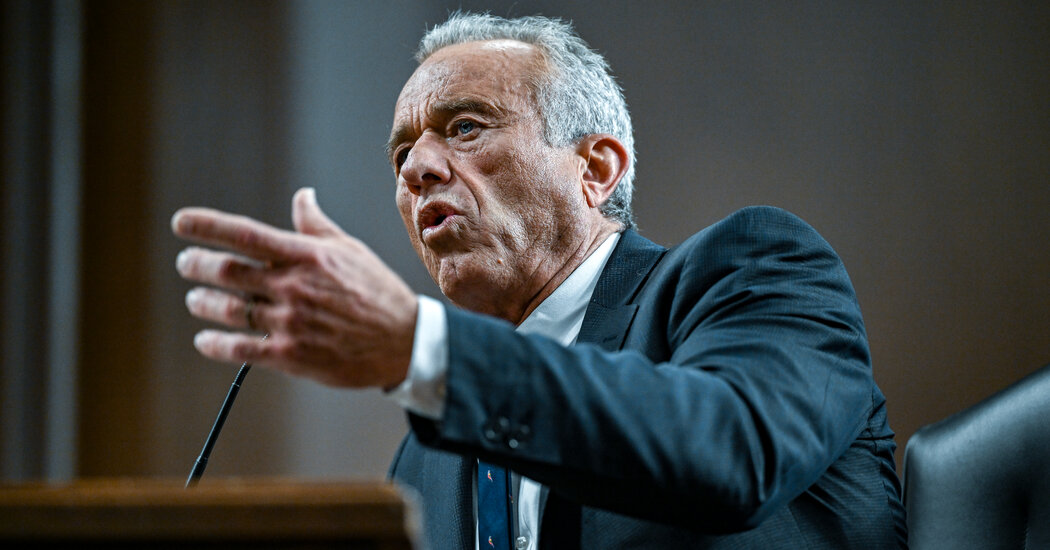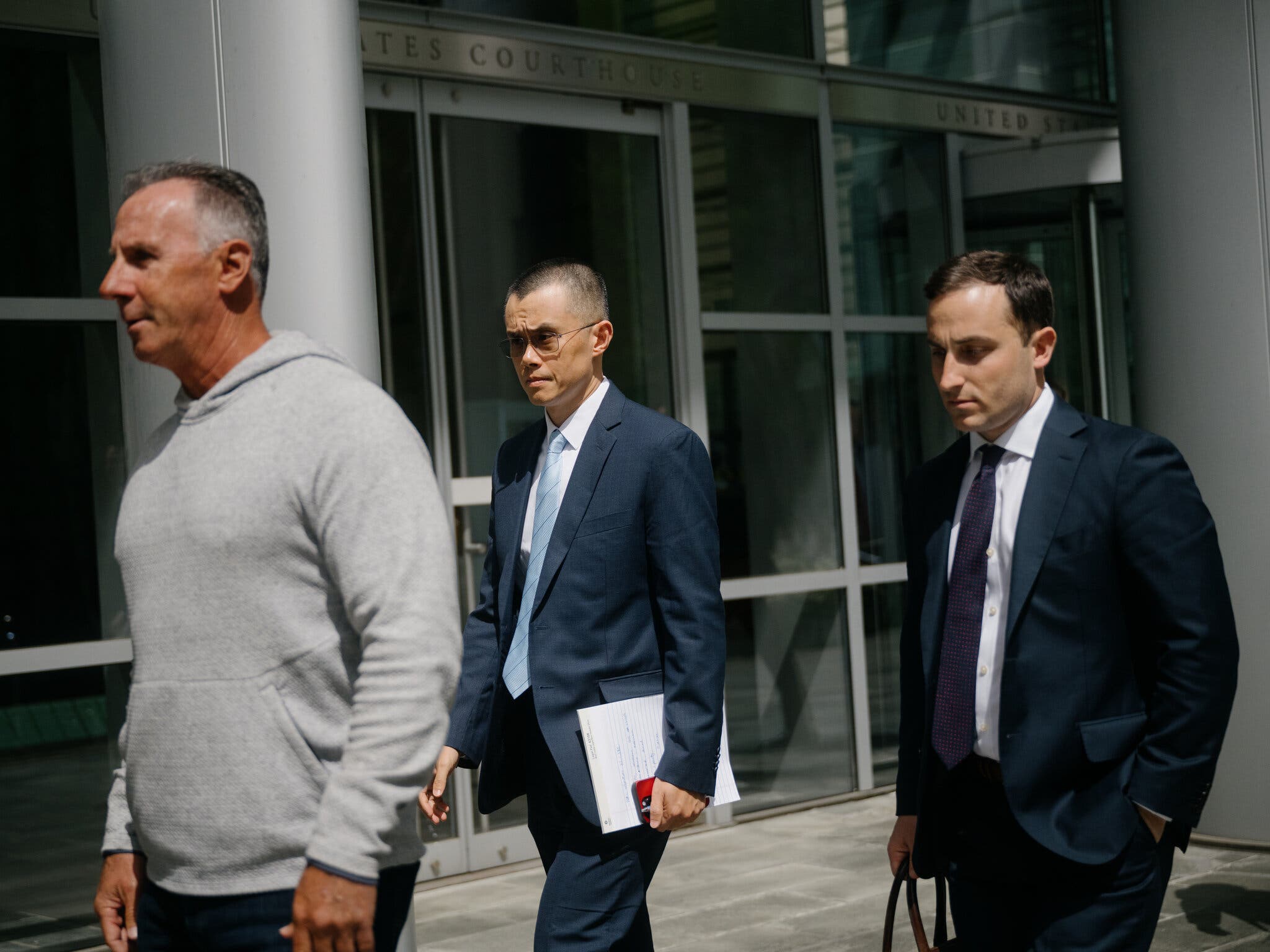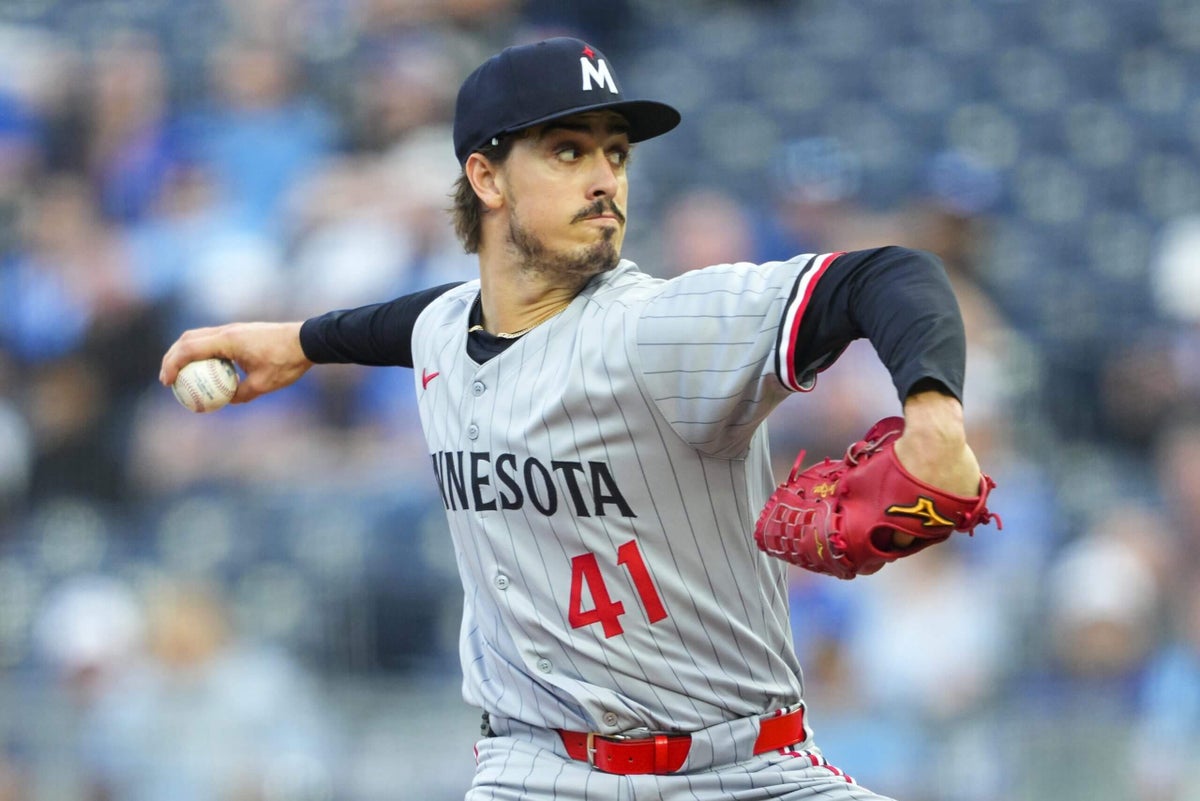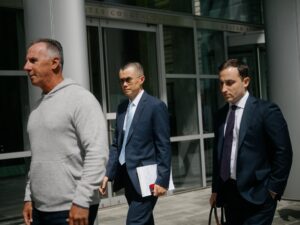Robert F. Kennedy Jr.’s Controversial Health Crusade
Public health leaders are horrified by Robert F. Kennedy Jr.’s approach to measles, but government and industry are responding to him. Babies are not ordinarily a fixture of closed-door White House meetings. But when Robert F. Kennedy Jr., the health secretary, convened a group of women this month for a discussion on nutrition and other topics, a healthy-eating activist who calls herself “the Food Babe” was stunned to see President Trump’s press secretary with her eight-month-old on her lap. While several female cabinet secretaries looked on, the press secretary, Karoline Leavitt, lamented that baby formula seems healthier in Europe than in the United States, where a recent study found that many varieties are laden with added sugars.
Robert F. Kennedy Jr.’s Unconventional Approach to Public Health
This focus on nutrition and healthy eating continues to be a central theme of Mr. Kennedy’s agenda, gathering support from a diverse group of advocates who believe in transforming the food system even amid controversy. Mr. Kennedy’s ability to rally people around the idea of making incremental changes to food policies demonstrates his knack for drawing attention to issues that resonate with public sentiment. This movement, which has gained traction in several states, aims to address broader concerns related to health and wellness. His team, divided between those focused on anti-vaccination and those passionate about nutritional improvements, indicates the varied appeal of his agenda. With legislation already being introduced in various states to restrict unhealthy food additives and promote healthier options in school lunches, the Kennedy influence continues to ripple across the nation, underscoring an ongoing quest for a healthier America.
Infant Formula and the MAHA Agenda
Last week, Mr. Kennedy proposed banning cell phones in schools, an idea with bipartisan backing. But in addition to citing children’s mental health, he made another, unsubstantiated claim: that cell phones “produce electromagnetic radiation” that can cause cancer. So far, Mr. Kennedy also appears to be largely ignoring government experts. He has not had any in-person or virtual briefings on measles from infectious disease experts at the C.D.C., according to two people familiar with the response to the Texas outbreak. Instead, he receives written reports from the agency. An administration official said Mr. Kennedy meets daily with “career leadership” at H.H.S., the C.D.C.’s parent agency, to discuss matters including measles.
The Role of Nutrition Activists in Shaping Policy
While critics may argue that Mr. Kennedy’s dietary remedies and ideas on food regulation are unconventional, his initiatives are starting to resonate nationwide. From restaurant chains altering their cooking methods to school systems reconsidering their lunch offerings, the ripples of his influence are evident. Advocates like Ms. Hari view these changes as preliminary steps towards a broader transformation of the American food system. The focus now seems to be on making gradual improvements and maintaining the momentum that Mr. Kennedy’s campaign has generated. Whether these developments signal lasting reform or are fleeting trends remains a topic of debate among supporters and skeptics alike.
Tensions with Congress and Industry Stakeholders
As Mr. Kennedy continues to navigate his role within the health department and push his agenda forward, it remains to be seen how his efforts will shape the future of public health policy in the United States. His controversial positions and unorthodox methods have certainly stirred the pot, prompting discussions on nutrition, health, and government regulations. Whether he will succeed in implementing his vision without significant friction from established entities and whether his impact will produce lasting change are questions that only time can answer. For now, Mr. Kennedy’s journey remains a closely watched saga unfolding on the national stage.















Post Comment